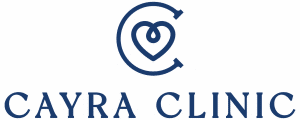A crooked nose after revision rhinoplasty can be seen from several factors, including the complexity of revision procedures, residual swelling, scar tissue formation, underlying structural issues, and the individual’s unique healing process. Additionally, the precision of the surgical technique and post-operative care adherence play crucial roles. Discussing your concerns with your surgeon is essential, as the nose can take up to a year or more to fully heal, and seeking a second opinion from a specialist may provide further insights and potential solutions.
Reasons for Crooked Nose?
There could be several reasons your nose is still crooked after revision rhinoplasty. Here are some common factors:
1. Healing and Swelling
Healing Process: After surgery, the nose can take up to a year or more to fully heal. Swelling can persist and may cause temporary asymmetry or unevenness.
Scar Tissue: Scar tissue formation during the healing process can affect the final shape of the nose.
2. Surgical Limitations
Complexity of Revision: Revision rhinoplasty is often more complex than the initial surgery due to the presence of scar tissue, changes in anatomy, and previous alterations.
Structural Issues: Correcting underlying structural problems, such as a deviated septum, asymmetrical cartilage, or bone, can be difficult.
3. Technical Factors
Surgical Technique: The surgical techniques and approaches can influence the outcome. Precision is crucial, and even slight inaccuracies can result in noticeable imperfections.
Graft Movement: If cartilage grafts or implants were used, they might shift or not integrate as planned, leading to a crooked appearance.
4. Patient-Specific Factors
Skin Thickness: Thick skin can mask changes and lead to a less refined result, whereas thin skin can more readily reveal imperfections.
Healing Variability: Individual healing responses can vary greatly, influencing the outcome.
5. Post-Operative Care
Compliance with Post-Operative Instructions: Not following post-operative care instructions can affect the healing process and result.
Trauma or Injury: Any trauma or injury to the nose during the healing period can lead to changes in shape and alignment.
6. Surgeon’s Expertise
Experience of Surgeon’sThe surgeon performing the revision rhinoplasty must have critical expertise and skill levels. Specialized training in revision procedures can impact the outcome.
Steps to Take
Follow-up with Surgeon: Schedule a follow-up appointment with your surgeon to discuss your concerns. They can provide insight into the possible causes and potential solutions.
Second Opinion: Consider seeking a second opinion from a specialist in revision rhinoplasty to explore additional options or corrective procedures.
Patience: Allow time for the nose to continue healing and for swelling to subside entirely before making final judgments on the outcome.
Crooked Nose Surgery in Turkey?
Crooked nose surgery in Turkey combines world-class medical expertise with affordable healthcare options, making it popular for patients seeking correctional procedures. Renowned for its advanced medical infrastructure and skilled surgeons, Turkey offers various surgical techniques tailored to each individual’s needs. Whether addressing deviations from individuals ‘rhinoplasty procedures or correcting congenital asymmetries, Turkish clinics prioritize patient satisfaction and safety. With a focus on personalized care and innovative approaches, patients can expect comprehensive pre-operative consultations, state-of-the-art facilities, and attentive post-operative support. From Istanbul to Ankara, Turkey’s reputation as a leading destination for croTurkey’se surgery continues to attract patients worldwide, seeking quality outcomes amidst cultural richness and hospitality.
Crooked Nose Surgery Cost in Turkey?
The cost of crooked nose surgery in Turkey can vary depending on several factors, including the complexity of the procedure, the surgeon’s experience and reputation, the clinic’s location, and any additional treatments or clinics required. Crooked nose surgery in Turkey may range from $2,000 to USD 5,000 on average. However, it’s important to note that this is a rough estimate, and actual prices may vary. Some clinics may offer package deals that include accommodation, transportation, and post-operative care, while others may charge separately for each component. It’s recommended that multiple clinics be researched, patient reviews read, and consultations be scheduled to clearly understand the total cost and what is included in the price. Additionally, patients should ensure that the chosen clinic and surgeon maintain high safety and quality standards to achieve the desired results effectively.
If you are unhappy with the results, discuss all possible options and next steps with your surgeon, including the potential for further revision if necessary.
